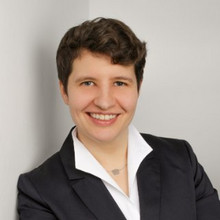Nanoparticle growth in low-temperature plasmas: applications, growth and diagnostic of nanoparticles - Iris Pilch, Université Linköping (Suède)

Nanoparticle growth in low-temperature plasmas: applications, growth and diagnostic of nanoparticles
Iris Pilch, Department of Physics, Chemistry and Biology
Université Linköping (Suède)
abstract:
Nanopar cles have been found to be of advantage for applica ons like solar cells, fuel cells, sensors, or medical applica ons. In order to tailor the proper es for a speci c applica on, one o en would like to increase the complexity of the nanopar cle structure to create nanopar cles with mul func onal proper es. This can be achieved by synthesizing nanopar cles using mul ple elements and crea ng di erent morphologies like alloys, core-shell, mul -shell, dumbbell-shaped, or Janus-shaped structures.
Low-temperature plasmas are in par cular suitable for synthesizing these structures because it allows to create structures that are thermodynamically less favorable. The general growth stages of nanopar cles in a plasma are known (nuclea on, coagula on and surface growth) and the par cle growth proceeds mainly through random collisions. Although the individual growth events are governed via random collisions, complex nanopar cles with precise structures can be synthesized. The central research ques on that has not been answered is: What are the fundamental growth principles of mul component nanopar cles leading to complex nanopar cle structures when the growth is proceeding only via random collisions in the gas phase? The missing link are the unknown interrela onships between the material proper es as boundary condi on, the plasma environment as controlling unit and the proper es of nal nanopar cle structures.
In this contribu on, a ief introduc on to present research on the synthesis of complex mul - component nanopar cles will be given. The growth of nanopar cles by collec on of ions and possibili es for controlling the nanopar cle proper es will be described. A central aim of this talk is to provide an overview of the proposed research programme and the strategy for answering the complex research ques on.
Emplacement : 2900, chemin de la Tour Z-350 Montréal H3T 1J6 QC Canada